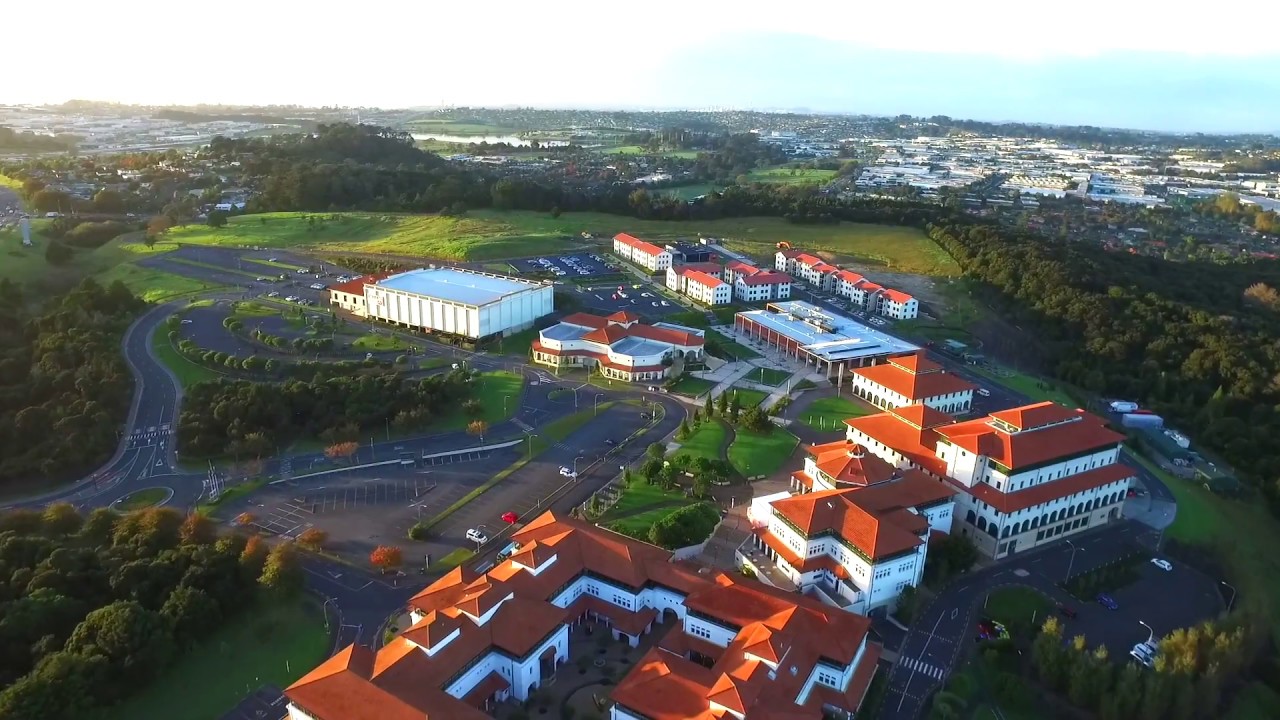Bachelor of Science in Microbiology
Massey University is one of only three universities in New Zealand where you can study a full course in microbiology. The breadth of our course is unique.
Microbiology is an essential science that helps us understand the microbes in the environment, including microbes that dwell in the soil, air and water, in our food and inside people, animals and plants. Microbiology can impact on many different areas, such as:
- agriculture, where rumen microbes are both essential to dairy and good industries, but also responsible for much of New Zealand’s carbon emission;
- bioprotection, where efforts to preserve native birds (kiwi) and plants (kauri trees) depend on expert control of microbial pathogens
- microbes have applications as model systems to answer questions beyond the immediate range of microbiology, such as the causes of cancer or birth defects;
- green and bio-based technologies, where microbes help preserve our environment by producing bio-based materials for use in diagnostics and vaccines or by harnessing solar energy for fuel production.
Multi-disciplinary
In the Massey Bachelor of Science (Microbiology) you will learn about microbiology hand-in-hand with other science areas such as veterinary, animal, and environmental science. This allows you to explore microbiological disciplines, including environment/ecology, medical, veterinary and food microbiology, and biotechnology.
Some of the topics taught in microbiology courses include:
- bioinformatics and genomics
- biotechnology
- DNA technology
- environmental microbiology
- immunology
- medical microbiology
- developing diagnostic tests for infectious diseases (including SARS-CoV2)
- microbial diversity
- applied and industrial microbiology
- food microbiology.
Heaps of laboratory experience
Exposure and time in labs is a large component of our course and on par with what is usually only seen in employment. For example, you’ll get to do a lab-based simulated research project, such as identification of microbes in environment or food, or producing useful proteins in bacterial culture. As a graduate, you’ll have lab confidence and the unique ability to show potential employers that you are skilled in lab-based experiments.
Campus Information
Manawatu campus
The Manawatu campus is Massey's original campus. With lovely heritage buildings and park-like grounds located near Palmerston North city, it is one of the best places in the country to experience the real student lifestyle. With a huge portion of the population under 25 it is the perfect place for learning and living. The large campus is beautiful year-round with 11,500 different varieties of plants and trees in the form of manicured gardens, green fields, woodlands and bush.
Intakes
- Feb
- July
Application Processing Time in Days: 30
Application Process
Minimum English Language Requirements
| English Level Description | IELTS (1.0 -9.0) | TOEFL IBT (0-120) | TOEFL CBT (0-300) | PTE (10-90) | |
|---|---|---|---|---|---|
| Expert | 9 | 120 | 297-300 | 86-90 | |
| Very Good | 8.5 | 115-119 | 280-293 | 83-86 | |
| Very Good | 8 | 110-114 | 270-280 | 79-83 | |
| Good | 7.5 | 102-109 | 253-267 | 73-79 | |
| Good | 7 | 94-101 | 240-253 | 65-73 | |
| Competent | 6.5 | 79-93 | 213-233 | 58-65 | |
| Competent | 6 | 60-78 | 170-210 | 50-58 | |
| Modest | 5.5 | 46-59 | 133-210 | 43-50 | |
| Modest | 5 | 35-45 | 107-133 | 36-43 | |
| Limited | 4 | 32-34 | 97-103 | 30-36 | |
| Extremely Limited | < 4 | < 31 | < 93 | < 30 |
Job Opportunity Potential
In demand
The growing demand for qualified microbiologists is highlighted by the number of microbiology positions advertised in the scientific journals Science and Nature. The need for microbiologists has been sharply increased by Covid-19 pandemics, where microbiologists play the key roles in developing diagnostic tests and vaccine. Microbiologists are on the Immediate Skill Shortage List as published by the New Zealand Immigration Office.
Areas graduates could work in include:
- reducing global warming and the production of environmentally-friendly biodegradable materials
- the production of high-value compounds such as antibiotics and vaccines
- food production - such as beer, wine and cheese
- developing affordable and rapid tests for SARS-CoV2 and other disease-causing microbes
- preventing and treating diseases, forensics and cleaning up pollution
- search for life on the bottom of the ocean and on other planets.
The importance of microbes in traditional New Zealand industries means that you will be in high demand by these industries and Crown Research Institutes in quality control and research and development.
Other traditional areas of employment include hospital laboratories, universities, Crown Research Institutes, meat and dairy processing or vaccine production companies, quality assurance and diagnostic laboratories (AsureQuality, Hills Laboratories, Eurofins, Gribbles, MedLab Central and others), or government (e.g. Border control, Ministry of Primary Industries, Environmental Protection Authority). Newly emerging New Zealand export industries, such as winemaking and biotechnology, as well as diverse food production companies, employ graduates from the programme.
PSW Opportunity
- During study, all students on a student visa can work up to 20 hours per week during semester and full time during vacations.
- After completing Level 7 Bachelor’s Degree or Higher Qualification, a student will get a three years open post-study work visa.
- After completing Level 8 Post Graduate courses of 1 year, students get 1 year PSW.
Admission Requirement / Eligibility Criteria
- All India Senior School Certificate (AISSC) or Indian School Certificate (ISC) Year 12 with an overall average of 75% and a minimum of 60% in English
- For most undergraduate level programmes, the minimum academic entry requirement is successful completion of a qualification equivalent to the New Zealand Year 13 - NCEA Level 3 University Entrance. International students need to check the equivalency of their secondary school qualification by reviewing the list of Academic Admission Requirements by Country/Region.
- International students who have previously studied at a New Zealand secondary school should refer to the secondary school requirements section.
- International students who have completed 3 x B at level 5 or 6 passes in the New Zealand Diploma of Business may apply for entry into a Bachelor's programme.
- An NZQA transcript as formal evidence of the NZDipBus results is required before credit will be assessed and only papers with a minimum grade of B will be assessed for credit.
- The English language requirements can be met by:
- A minimum IELTS 5.5 (or equivalent) used to gain entry to the NZDipBus or,
- A recent IELTS 6.0 with no band score less than 5.5
- Course Type: Full Time
- Course Level: Bachelors/UG Degree
- Duration: 03 Year
-
Total Tuition Fee:
101310 NZD
Annual Cost of Living: 20000 NZD
Application Fee: N/A
Similar Programs
- Bachelor of Science (Statistics) at Massey University
- Bachelor of Science (Psychology) at Massey University
- Bachelor of Science (Mathematics) at Massey University
- Bachelor of Science (Computer Science) at Massey University
- Bachelor of Information Sciences (Computer Science) at Massey University
- Bachelor of Arts (Statistics) at Massey University

